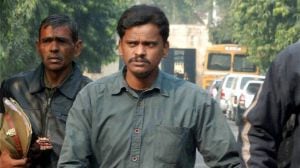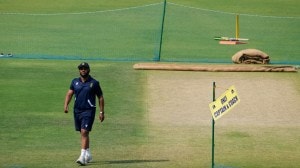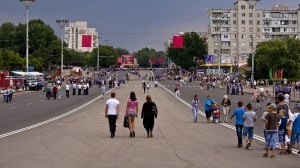On board Samjhauta, it’s a tale of compromise
The Samjhauta Express may be the figurehead of the new breakthrough in Indo-Pak relations, but passengers complain there are far too many lo...

The Samjhauta Express may be the figurehead of the new breakthrough in Indo-Pak relations, but passengers complain there are far too many logistical problems with the train, and that urgent steps need to be taken to improve its functioning.
‘‘At the moment, the government seems to be content with the fact that the train exists, nothing is being done to ensure it operates smoothly. Because we are all poor people who travel by this train, the government doesn’t care,’’ said Mumtaz Begum from Delhi.
The Delhi-Attari train, which becomes the Samjhauta Express from Attari to Lahore, leaves at 9 pm from Delhi and reaches Attari on the border at 4.30 am. There is then a five to six hour wait until Customs and Immigration officers arrive at the station to process passports and goods.
Attari station has no seats, the latrines are filthy and the weather in winter at that time of the morning is often freezing. Passengers say customs officers openly demand bribes, harass customers and confiscate goods without explanation. ‘‘They treat us like cattle. Open up our suitcases and throw things around,’’ said Nasruddin, an employee of the UP State Sugar Corporation. Salman Javed, a businessman says he doesn’t understand why customs proceedings are undertaken twice, once at Attari and again at Wagah.
At Attari, the computers were not working and immigration took about four hours, as everything was checked manually. Since immigration forms here are written in English, the majority of passengers are unable to fill them, which leads to further delays. ‘‘Why can’t these forms be in Hindi or Urdu?’’ asked many
Customs officers are perceived as demons on the Samjhauta Express. Shuja-ur-Rehman from Pakistan complained that he was being treated rudely and told to wait because ‘‘You are a Pakistani’’.
Says R.K. Malhotra, customs officer at Attari: ‘‘Customs is governed by Indo-Pakistan baggage rules, we can’t divert from them. The fact is these are all illiterate, poor people. They are often used as conduits or agents. They have no idea what contraband items are. They take wildlife across because they don’t know it’s banned. We have found security maps in cigarette packs. Pistols. Because they are illiterate, they are used by agents. They also all want to carry our petty trade’’.
‘‘A hungry man wants to sell goods,’’ argues Ishaq Khan from Faridabad, ‘‘Yes, I do want to trade. Why not?’’ Malhotra says in the near future SAFTA might come to the rescue of these traders who have always treated Indo—Pak trains as trading trains.
At Wagah, once again, computers had broken down and immigration took a frightfully long time, keeping the train waiting for almost six hours. All confiscated goods were sold to local traders, who wheeled away mountains of paan and lipstick out of the station.
Police officers are also seen as sources of terror on the Samjhauta Express. Metal worker Salauddin said that police patrol compartments late at night, wake up passengers and take away their goods if they don’t pay. Mumtaz Begum complained her oranges had been taken away and eaten and that her gifts were taken away.
Constable Nirmal Singh and Surinder Singh of the Punjab police say this is not true. ‘‘No policeman gets drunk and misbehaves,’’ they say, ‘‘These people are lying. We only do our duty because we are concerned with national security.’’
Syed Yakoob, a marketing executive, says he doesn’t understand why the train goes to Lahore. ‘‘Most people from India are passengers to Karachi. Why does this train not go to Karachi?’’ The majority of people, including a large contingent from Kashmir, were all going to places other than Lahore.
Photos



- 01
- 02
- 03
- 04
- 05




























